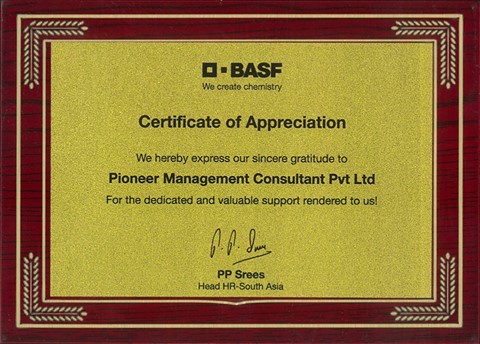Interview as a Conversation, not Interrogation
As more and more job seekers are out there, getting to the step of a personal interview itself has become an achievement for a candidate. Such a crucial step must be handled with utmost sincerity. But why have interviews become so nerve-wracking and not a means to understand the potential of a candidate?
Personally, I have gone through some terrible interviews myself. Recently, I applied for a content writer job. After getting through multiple rounds, phone calls and emails, a personal interview was fixed by the HR. When I joined the video call, the first thing I saw was just a random picture, fixed as wallpaper instead of being able to see the interviewers. Later, I was asked questions about my life so far as I have stayed in a couple of cities all my life. I was then questioned about the reason to leave my last job, something I didn’t quite do justice to. After this point, the interview became more or so a trash-talk. The interviewer took this as liberty to call me fickle-minded or someone who is not capable of anything in life. My voice almost cracked as I was trying hard not to cry over some random person trying to insult me for nothing. The interview had nothing to do with the job profile. Not once was I asked about my skill set, ability to handle more than one project, experience, etc.
The next day when I got a call from the HR saying I was selected, I requested to not take it forward as I thought the workplace environment was not meant for me.
Such interviews can cause a setback in the future. It can create a sense of fear while giving other interviews. So here’s what we need to understand about interviews and why it should be more of a conversation than an interrogation.
There is much more to a person than the pointers on a resume. A resume is not just a sheet of paper but beyond it there is a real person with a lot of real qualities and attributes, which are essentially a part of what he/she brings to the organization
What an interviewee needs to know:
First, we need to understand that hiring takes place because both parties benefit from it. The interviewer has the power to ensure a potential candidate is given a chance to change the current dynamics of an organisation, to contribute towards building the organisation. The interviewee has the power to be resourceful whilst making career aspiration in an organisation where there is an inducive work culture which respects employees contribution.
Job seekers must understand that an interview is a means for them to understand the company better. Before attempting at any interview, study about the organisation, try to gather as much information important to you about the workplace and the interviewers.
Don’t just study the job profile. Go beyond job description lens, it's just not about your job, it's about your career. You might be a part of this company years from now with a career progression plan.
Your career affects where you live and operate, every new job changes the impact and course of your life
Keep yourself handy with the information which you would like to learn about the organisation, going beyond the job description and certainly the interview is an opportunity to seek more informative details about the organisation which will influence your decision. Don’t wait until the end to ask your set of questions. It is your job as well to make sure the interview opportunity helps you with all the informative details which impact your career decision. Make it an informative conversation, discussion not a probing interrogation.
What interviewers need to know
It's a 'COMPLETE PERSON' who fills a position, not just a set of hard and soft skills, personal and professional traits, core and competencies.
Every candidate applying for the position has thought of working at the organization, even if it is for a second. This reason alone should be enough for every interviewer to respect every application the company receives. Know that the candidate has also spent time and energy to be present at the specified time and place. Understand that this interview means just as much to him/her as to you and the organisation. Many times candidate has a great skill set and a great experience but at times they do have a bit of nervousness or hesitation during the interview here it is very important that the hiring manager helps the candidate feel comfortable and starts with some light questions such as, “What are your hobbies?”, "Was it easy to locate the venue?", begin with allowing the candidate to settle down a bit, you never know how his travel journey may have been. Let's begin the discussion with tea/coffee and try to be friendly with your responses. It's important to add a little bit of “oh that’s good to hear” or “that sounds fun” now and then to lighten the atmosphere.
Irrespective of the candidate being selected or not, make sure to end the interview on a good or positive note. Give them a chance to explain themselves while answering, and when they can’t, help them instead of holding them responsible for coming unprepared and jumping on the judgement, allow them to speak out. Be sure to express thanks for every candidate showing up for the interview. Help them with positive constructive feedback, highlight the potential of every individual coming for the interview. It is your job to bring out the best of every candidate for a better understanding. Also, if a candidate is not moving forward, please make sure to let them know through mails in a few days.
A bitter interview can make a candidate develop negative impact, hatred towards the organization, something that can hinder the name and goodwill of the brand quickly. The interview is not an interrogation. No candidate is below or above the organisation.
Every job applicant is a potential employee who is going to contribute to building a strong organization A great candidate experience will influence the candidates in their decision to apply to your company or accept your job offer.
Disorganization breeds bad candidate experience. Hence, have a structured and respectful approach with the candidates during an interview. Try to avoid looking for a 100-per cent match. Instead, find candidates that show a willingness to learn and adapt, who is zealous, curious and has the ability to translate thoughts and ideas into action.
Give a patient and respectful hearing, make sure nobody leaves with a bitter experience., Bad candidate experience will make candidates lose respect for you, both as an employer and as a brand.
Create a great candidate by paying due respect without any prejudice and biases. Great candidate experience is the core of a successful recruiting and hiring process which reflects the organisation's work culture, inclusiveness and belongingness at the workplace.
#interview #interrogation #candidateexperience #respectcandidate #structuredinterview
About the Author - Poornima Ashok Jadhav
A young mind with endless ideas on how to change the world
Content Writer Interns with Pioneer Management Consultant Pvt Ltd
About Us : Pioneer Management Consultant Pvt Ltd
25 years in Recruitment Industry- Helping Businesses connecting its People
Our Recruitment Services
Executive Search | Diversity Hiring | Permanent & Contract Hiring | Staffing Outsource | Returnee Internship Program



Leave a comment